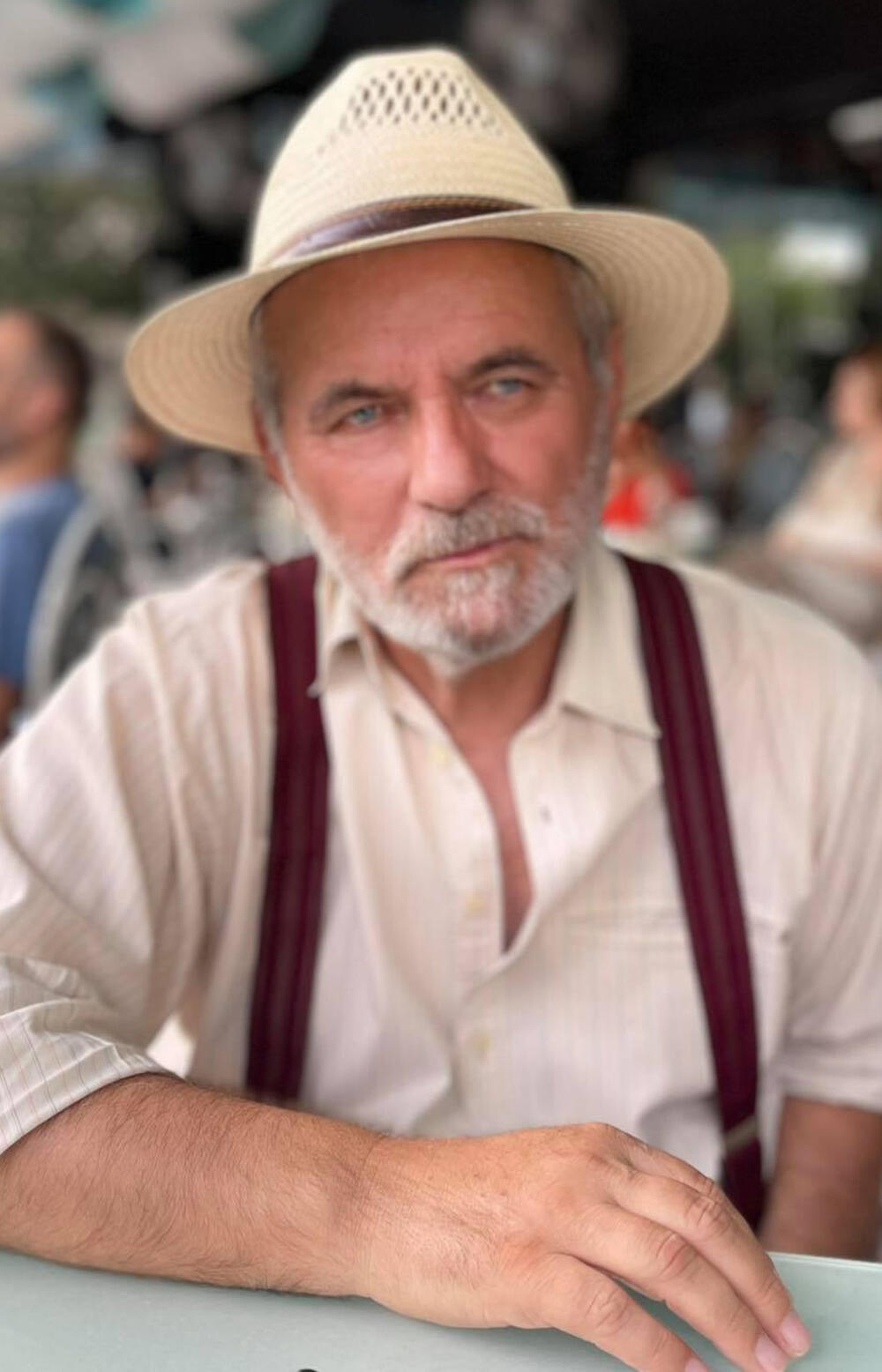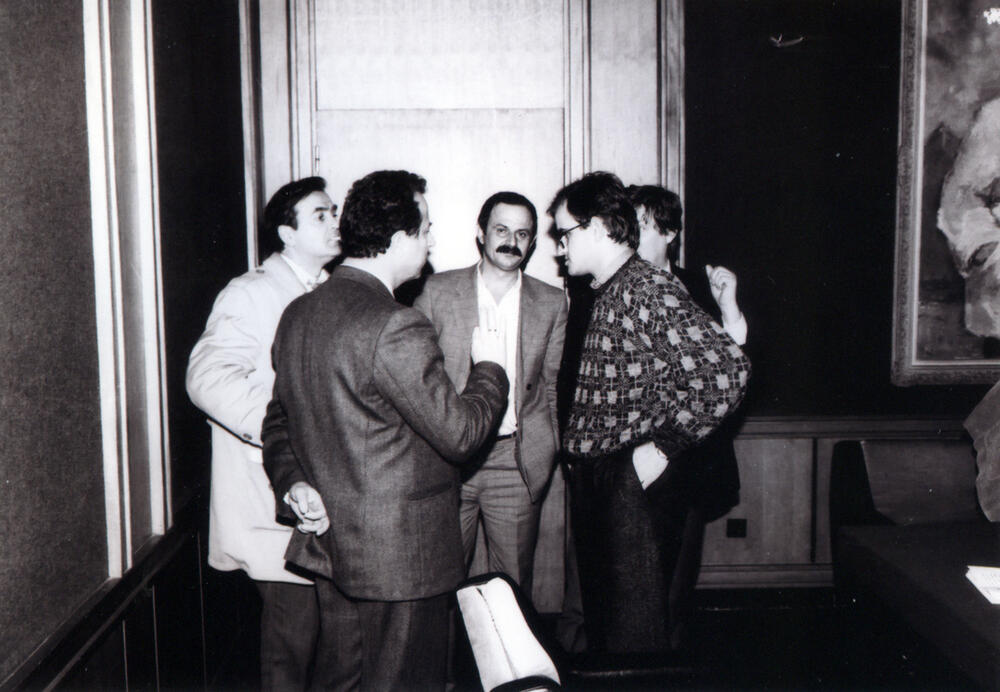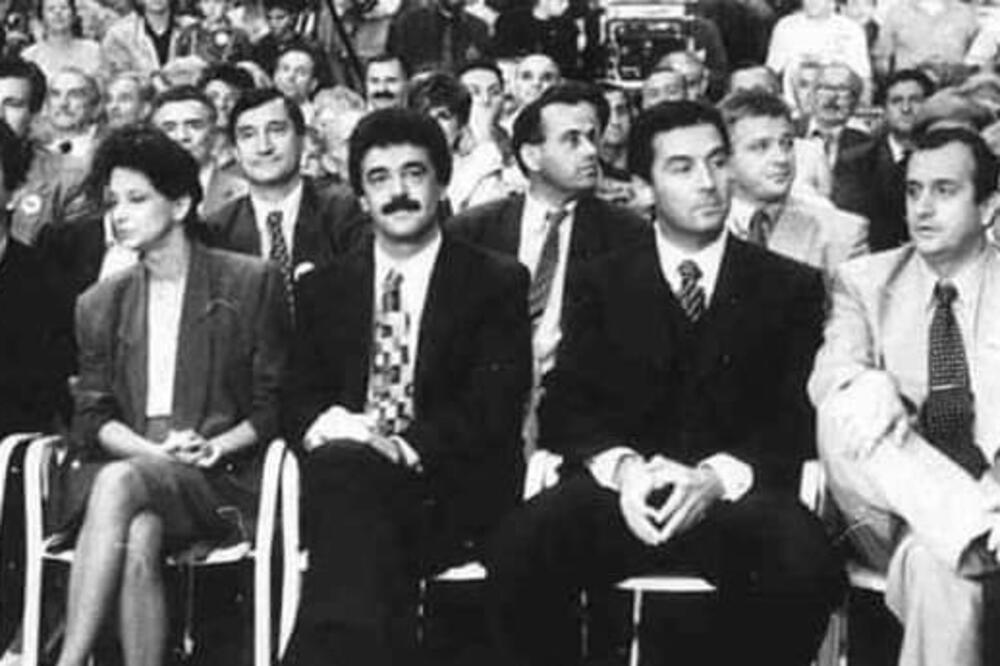Even after 33 years of the anti-bureaucratic (AB) revolution, Montenegro has not reconciled with its heritage, considering that even after the historic change of power in the 2020 parliamentary elections, some actors of the revolution are still present in political life and in important positions.
This was assessed by the interlocutors of "Vijesti", commenting on the anniversary of the AB revolution - an event that was a turning point in recent Montenegrin history.
The famous meeting, after which the then Montenegrin leadership resigned, was held on January 11, 1989 in what was then Titograd.
A new set of young communists came to power, led by today's president Milo Djukanovic, the late former president Momir Bulatović and the former president of the state union, convicted Svetozar Marovic. They came to power with the support of the regime Slobodan Milosevic.
The rally was the culmination of the so-called anti-bureaucratic (AB) revolution, which, in addition to Montenegro, also brought down the leadership in Vojvodina and Kosovo.
At the first session after the dismissal of the party and state leadership, the then representative of the Socialist Youth Alliance, Milo Đukanović, told his dismissed colleagues that those who said that the street protests were, in fact, a struggle for power, were right.
"It was a struggle for power, which was supposed to take away power from the bureaucratized leadership and return it to the one to whom it belongs according to the Constitution: the working class and the people," Đukanović said at the time.
Kočan: "Even today, that muddy river is rolling through Montenegro"
Editor-in-chief of the weekly Monitor, Esad Kocan, he told "Vijesti" that, unfortunately, the AB revolution, the nineties and everything that followed - the loss of Montenegro's identity and the wars - never came out of it.
"Even today, that muddy river is rolling through Montenegro," said Kočan.
He said that there were several serious attempts after the referendum on independence to stop that flow:
"That was the so-called "deceitful spring" and the last time it was magnificent in the full sense, the civil spontaneous "Resist" movement that came out of that code. It was an attempt for Montenegro to continue the tradition of the emancipatory movement from the nineties, which opposed everything that the AB revolution meant".

That, he said, did not work, because Đukanović was quite strong and was not ready to make any concessions to that civil emancipation movement.
"On the contrary, he did everything to suffocate him".
Kočan said that then came the liturgies and the liturgical movement, which was strong, organized, and which was to a considerable extent a continuation of the tradition of the AB revolution, but not completely:
"He had some differences. Main actor (deceased metropolitan) Amphilochius who was a very important actor in the wartime nineties, was there. However, he played a slightly different role".
He explained that there was a difference, because the AB revolution happened in collusion with (Slobodan) Milosevic, and now, in some way, there was no coordination with (Alexander) Vučić.
He said that he does not believe that the new government, especially the dominant forces in that new government, will have the strength to face the XNUMXs.
"On the contrary, it is romanticized in a way. The role of Amfilochius is romanticized - he turns into the grandfather of the nation. Those forces that were in the minority in the nineties, that did not side with, first of all, Đukanović, and of course did not side with the new winners either, are somehow historical losers, always in the minority, always in a strait to fight to get Montenegro on that route to get out of it".
He explained that these forces are very small, that they constantly need to gather and establish some new social norm:
"Djukanovic lost power very late. If he had lost power a little later, it would have been completely too late. At one point, he would be run over by those very comrades of his from the AB revolution".
Kočan, answering the question whether it is dramatic for him that 30 years after the AB revolution there are a lot of people on the political scene who were its actors, said that apart from them being there personally, their policies are also there.

A new capitalist class was created on the wave
"The whole business structure, the new capitalist class was born on that wave. While they sent people to the battlefields, here they created this permanently voracious class that carries out permanent accumulation", said Kočan.
On the day of the rally in 1989, the workers of "Radoj Dakić" were the first to go to the Parliament of Montenegro, who were then joined by students and citizens.
The workers were represented in the Committee for conducting the rally Predrag Bulatović, Svetozar Vukčević, Radisav Bošković, Ismet Hadžijusufović i Predrag Lakić, while the Association of Socialist Youth represented Ljubiša Stanković, Ivan Brajović, Srđan Darmanović, and the University Milica Pejanović Đurišić, Aco Đukanović and Momir Bulatović.
Apart from Đukanović, Predrag Bulatović, who is a deputy of the Democratic Front and a member of the Presidency of the now ruling coalition, is politically active today. The former manager at "Dakić" did not want to make a real parallel with "years starting in January", stating the position of DF that they do not give statements to Vijesti.
Milica Pejanović Đurišić is the ambassador to the United Nations, Brajović was the head of the Assembly until the parliamentary elections, and now he is the leader of the Social Democrats "in retirement".
Srđan Darmanović and Ljubiša Stanković are lecturers at the faculty, and Darmanović was also a member of the Government until the end of last year. Duško Marković.
Radovanić: It is important that actors retire
Representative of the younger generation of politicians, general secretary of the Civic Movement URA Mileta Radovanić he assessed that it was only 33 years after the AB revolution that Montenegro managed to replace the government that came from the streets on that date in an undemocratic way and that this is a commendable result.
"We finally managed to democratically change the government in our country in the elections of August 2020. What is not commendable is that it was waited for so long and that certain actors of the AB revolution are still present in the political life of Montenegro".
He assessed that these political actors are not only present and active in political life, but are even able to make decisions from important positions and hold various state functions.
"It is of great importance and healing that such people leave the political scene, into political retirement. Only when we deal with the political legacy of that landmark historical event, which was essentially only a cosmetic matter, will we be able to move forward as a society and state and speed up our integration towards Europe and the world," Radovanić said in a statement to Vijest.
He pointed out that many years, even decades, have been lost and that there is no more time to lose.
"We have to get out of the matrices of the past and look forward. We must truly change our society, implement fundamental and structural reforms. Our java has a place among developed countries and we have all the potential to make it happen. "Montenegro with a European perspective, as a member of the EU, a high standard of living must be everyone's basic goal," said Radovanić.
His party, as previously announced, could become the headquarters of a new Montenegrin government this month. For now, there are no confirmations that this will happen.
Đukanović: The value system remained the same
Analyst and sociologist Andrija Djukanovic assesses that it sounds paradoxical that the AB revolution broke out due to the fact that we lived in a one-party system, and that 30 years later the country was ruled by the same party with its smaller coalition partners.
"So, this very fact speaks of its failure. This revolution and its leaders led us into war and sanctions right from the start. That was the concrete result of that revolution, a setback and not the progress that was expected if "only they left", said Đukanović.
He pointed out that today we live in a fragmented society that is sinking more and more into conflict: "We have poor economic results, we are drowning in corruption and crime. I think that revolution failed. It is no longer important how it used to be, but what we have done since then to make it better. Almost nothing. That's why the period before the revolution seems like a golden age to many citizens," Đukanović told Vijesti.
He pointed out that essentially very little has changed for the better, stating that there may have been apparent progress in some things, but that the system of values brought by the AB revolution, among other things, remained the same.
"And he is bad and represents a brake on the faster development of society. It is the foundation of society, and in our case it is very important".
Đukanović assessed that the change of government did not bring anything newer and better. "The parties have become complacent, in fact they would like more. The government was shaped by the church, which has enormous power in society, so that the government itself prioritizes fulfilling the mandate of religious leaders. On the other hand, I do not see that this dominance of the church in the public space has affected the citizens in terms of their, as they say, spiritual elevation. On the contrary, it seems to me that it contributed to the strengthening of hatred and mistrust among people", said Đukanović.
He pointed out that corruption and crime continue unhindered to be a stone around the neck of the society, which is "divided at all seams and there are no prospects for it to somehow come together and put together".
"All this was sown in the glorious days of the AB revolution, when we were freeing ourselves from the "lamb brigades" and the unbearable torture of the communist system. I'm afraid that everything can get even worse," concluded Đukanović.
The fruits of the AB revolution are divisions of every kind
Andrija Đukanović assesses that the fruits of the AB revolution are division of all kinds, pollution of public space and media, enormous hatred, mistrust, immature and unscrupulous political elite.
"Someone rightly said then, when the revolutionary spirit gripped the former state, that we will pay for these delusions with poverty and poisoning of the spirit that will keep us on the periphery of the modern world. That's what happened in the end."
Kočan: Monitor remained to fight and "testify"
Esad Kocan said that new generations barely know what the resistance movement was like in the nineties.
"The Liberal Alliance, the Social Democrats, the minority parties were then in that circle, and the entire spectrum of social movements led by Monitor. Of all of them, when you look at it - there is no Liberal Alliance, the SDP is reduced to a minor party that can barely somehow distance itself from the DPS and find that emancipatory potential within itself. Of all those actors, Monitor from the nineties remained to fight and testify about these facts and their meanings".
Bonus video:




